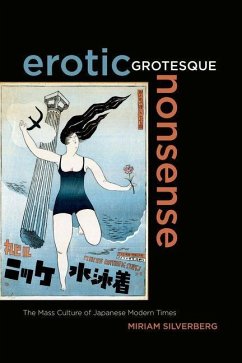This history of Japanese mass culture during the decades preceding Pearl Harbor argues that the new gestures, relationship, and humor of ero-guro-nansensu (erotic grotesque nonsense) expressed a self-consciously modern ethos that challenged state ideology and expansionism. Miriam Silverberg uses sources such as movie magazines, ethnographies of the homeless, and the most famous photographs from this era to capture the spirit, textures, and language of a time when the media reached all classes, connecting the rural social order to urban mores. Employing the concept of montage as a metaphor that informed the organization of Japanese mass culture during the 1920s and 1930s, Silverberg challenges the erasure of Japanese colonialism and its legacies. She evokes vivid images from daily life during the 1920s and 1930s, including details about food, housing, fashion, modes of popular entertainment, and attitudes toward sexuality. Her innovative study demonstrates how new public spaces, new relationships within the family, and an ironic sensibility expressed the attitude of Japanese consumers who identified with the modern as providing a cosmopolitan break from tradition at the same time that they mobilized for war.
Dieser Download kann aus rechtlichen Gründen nur mit Rechnungsadresse in A, D ausgeliefert werden.


